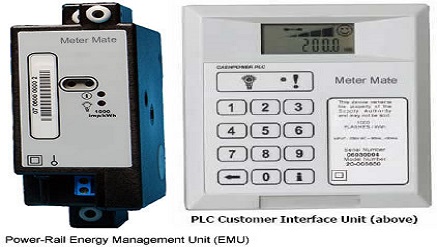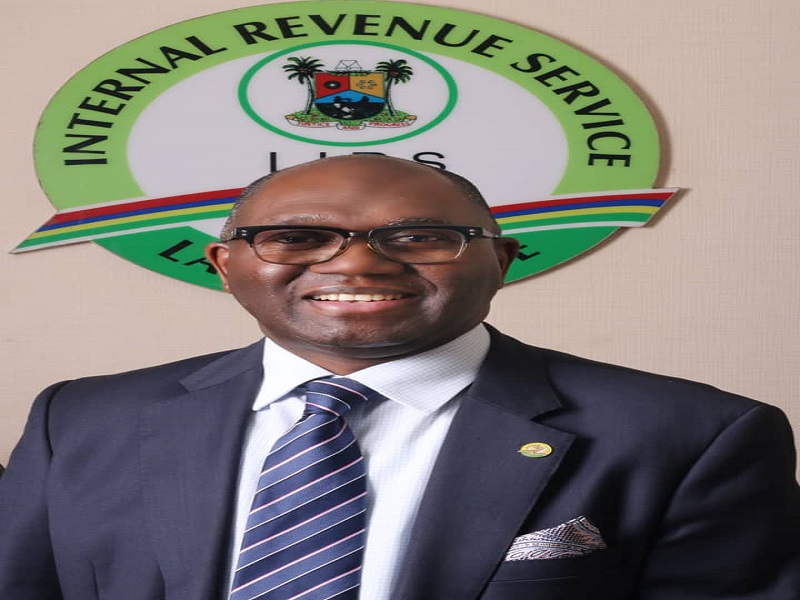News
Nokia Modernizes Smart Grid to Bring Power Distribution Networks into IoT Era

Nokia is introducing the 7705 SAR-Hm, a purpose-built, feature-rich LTE/3G wireless router aimed at modernizing distribution networks for utilities, but with clear applications for other high growth vertical markets, like Smart Cities.
The newest addition to the Nokia Service Routing portfolio merges IP/MPLS and LTE/3G technologies to provide utilities state-of-the-art wireless connectivity for grid devices located deep in a highly scalable distribution network.
This allows for promising new smart grid applications, including distribution automation, advanced metering, and integration of renewable energy sources, and lays the groundwork to support an anticipated massive increase in field devices with the Internet of Things (IoT).
Many power utilities currently use narrowband or proprietary wireless solutions to connect their field devices to each other and the control center.
Most remote devices have no connectivity at all. Without the ability to scale and manage the network, remote monitoring and control of devices is challenging, costly and extremely difficult to operate and deploy.
Nokia has applied its experience in deploying secure IP/MPLS networks and LTE/3G to extend the reach of utilities’ networks with this solution. Network operators, both public and private, will now have high capacity connectivity in their power distribution grids and directly into field devices, as well as the highest levels of reliability, security and scalability for mission-critical applications and services.
As Smart Grids are deployed, utilities will face a huge proliferation in the number of field devices they need to connect and manage. This includes integrating renewable energy resources, such as solar panels and wind farms, which are putting new demands on the electrical distribution system. Shifting loads and fluctuating generation from renewables will require real-time adjustment without operator intervention.
Because the 7750 SAR-Hm distributes intelligence wirelessly over the IP/MPLS transport network, devices in the field will now be able to communicate and make decisions without human intervention as well as have greater flexibility, reliability and scale.
This is critical for a more responsive grid today, and support for the expected increase in IoT devices in the future.
John Hughes, director, Network Engineering and Operations, Ameren Services, said: “Nokia’s addition of secure LTE and WiFi wireless connectivity into their existing 7705 service router product line dramatically increases the ability to integrate and centralize management of our end-to-end service connectivity for utility operations to meet our mission critical requirements.”
Melvin Sam Charuvilayil, supervisor, IT Network Planning & Engineering, Kansas City Power and Light, said: “Adding LTE and other wireless capabilities to the proven 7705 platform provides compelling new choices for utilities looking to extend the reach of their connectivity to modernize grid operations.”
Mike Zeto, general manager and executive director of AT&T Smart Cities, said: “AT&T is excited to team with Nokia to offer US utilities a private LTE solution. The new Nokia wireless router will help utility customers modernize their grid distribution and build converged field area networks to reap the benefits of the smart grid.”
Richelle Elberg, Principal Analyst, Energy, at Navigant Research, said “A holistic, network-centric strategy will benefit utilities which recognize how the industry is changing. A converged FAN approach leveraging IP/MPLS and LTE offers a future-proof, ubiquitous network with the capacity to handle new energy services, transactive energy models, DER integration and better customer engagement-in addition to more traditional smart grid and smart city applications. As described in our white paper, Communications in the Energy Cloud, Navigant Research has dubbed this holistic networking strategy the ‘Energy Superhighway.'”
Sri Reddy, head of the IP Routing and Packet Core Business Unit for Nokia, said: “Power utilities worldwide are in the midst of a significant transformation as they gear up to meet new market forces, green environmental regulations and disruptive renewable energy technologies. Grid reliability, power quality and automation are all key areas that will require improved field area networks. We are excited to offer our utility customers wireless options for extending the proven, secure and reliable IP/MPLS services of our Service Router portfolio. This will not only allow them to modernize their field area operations with more automation and monitoring for improved grid reliability and power quality, it will position them well to maximize tomorrow’s opportunities.”
This implies utilities can now use wireless infrastructure to introduce IP/MPLS services to locations and devices that previously lacked adequate connectivity, as the Nokia 7705 SAR-Hm enables applications that improve grid reliability and power quality, allowing for automation and supports green energy initiatives.
News
Firms Commit to Boost African Robotics Market

AfricAI and Micropolis Robotics have signed a multi-year exclusive distribution and deployment agreement, which marks one of the continent’s most significant robotics market entries.

Micropolis AI Robotics is a United Arab Emirates-based robotics manufacturer operating in autonomous systems, while AfricAI is a company building practical, revenue-driven artificial intelligence (AI) systems for African businesses, governments, and global partners operating in emerging markets.
According to the agreement, Micropolis Robotics named AfricAI as its exclusive continental partner, prohibiting direct sales, alternative distributors, and third-party agents from operating in the territory.
The partnership establishes AfricAI as the primary execution, localisation, and go-to-market platform for intelligent robotics in Africa’s industrial, security, logistics, and infrastructure sectors.
AfricAI said this exclusive mandate positions the company as the gateway for advanced autonomous systems entering African markets, ensuring regulatory compliance, local capacity building, and sovereign control over deployment frameworks.
The partnership, according to the two parties, moves beyond software- based AI into the realm of physical AI — intelligent machines capable of operating in complex, real-world African environments.
“This is not a collaboration, it is a market-shaping mandate,” said Fareed Aljawhari, CEO of Micropolis Robotics. “AfricAI now represents the exclusive gateway through which Micropolis technologies enter Africa. Their sovereign AI vision, operational reach, and regulatory fluency make them the only partner capable of executing at a continental scale.
Furthermore, the agreement enables AfricAI to integrate Micropolis’ autonomous robotics systems with AfricAI’s sovereign AI stack, resulting in AI-powered security and surveillance platforms, robotics-enabled logistics and port operations, industrial automation, smart infrastructure, and municipal robotics tailored to African operating conditions.
Initial deployments will commence in security, smart infrastructure, and logistics, with phased expansion across multiple African states as part of AfricAI’s broader continental AI, data, and intelligent infrastructure strategy.
The agreement also includes long-term performance-linked expansion rights, automatic renewals, and a defined localisation framework to support robotics deployment, workforce training, and skills transfer across Africa.
Prince Malik Ado-Ibrahim, executive chairman of AfricAI, said: “Africa does not need imported automation — it needs sovereign, context-aware intelligent systems. This exclusive mandate allows AfricAI to industrialise robotics deployment at scale while retaining control, compliance, and value creation on the continent.”
News
Subair: LIRS Won’t Raid Accounts – Unless You’ve Lost Every Court Battle

Lagos State Internal Revenue Service Executive Chairman Ayodele Subair Tuesday demolished online panic over alleged bank account raids, insisting the agency’s “Power of Substitution” targets only hardcore tax dodgers who have exhausted every appeal from tribunals to the Supreme Court over half a decade of disputes.

Ayodele Subair
Subair, speaking on Arise TV, shredded viral fears that LIRS would swoop on residents’ savings without warning, clarifying the mechanism under Section 60 of the Nigeria Tax Administration Act 2025 kicks in solely after assessments spark objections, reconciliations, demand notices, and a gruelling courtroom odyssey through High Court, Court of Appeal, and apex rulings.
The LIRS weekend notice had ignited fury by announcing enforcement via third parties – banks, employers, tenants, debtors – to claw back unpaid Personal Income Tax, Capital Gains Tax, Stamp Duties, and Withholding Tax from chronic defaulters holding funds or owing money to them, whether due now or accruing later.
Subair likened the process to a “long timeframe, not less than five years,” where recalcitrant bigwigs who stonewall every step become fair game, with LIRS directing agents like customers or partners to divert payments straight to the taxman in lawful settlement.
Far from arbitrary grabs, the chairman stressed it’s a final resort for “entirely recalcitrant” holdouts who ignore Notice of Refusal to Amend (NORA) and every olive branch, ensuring Lagos coffers snag rightful revenue fuelling the state’s bulging budget without shotgun raids on compliant payers.
As social media buzzes with defiance – “They can’t touch my account!” – Subair’s blueprint spotlights Nigeria’s tax evasion scourge starving subnationals of trillions yearly, with Lagos alone chasing billions in arrears amid federal revenue wars and economic headwinds squeezing the commercial capital’s 25 million souls.
Industry voices nod to the legality but plead for digital dashboards tracking disputes transparently, warning overzealous recovery could spook investors in Africa’s fintech and startup mecca already reeling from naira nosedives and grid glitches.
With LIRS poised to unleash the hammer on vetted violators, Subair’s clarion call aims to separate myth from muscle, bolstering Lagos’ IGR juggernaut that hit N815 billion last year while daring defaulters to test the full judicial gauntlet before crying foul.
News
NIGCOMSAT Adopts Government’s Performance System

Nigerian Communications Satellite (NIGCOMSAT) Ltd, in a strategic move to modernise its operations and foster a results-oriented workforce, has officially adopted the Federal Government’s Performance Management System (PMS).

The initiative, aimed at driving efficiency and institutionalising accountability, was marked by an intensive staff training program designed to align the agency’s operations with national performance goals and the Presidency’s vision for a digital-first public sector.
According to a statement from Stephen Kwande, the Agency’s acting head of Corporate Affairs, “the transition to PMS is a departure from historical evaluation methods. The new system is designed to provide real-time performance tracking and instill a stronger work ethic across all directorates”.
Welcoming participants, Mrs. Jane Nkechi Egerton-Idehen, managing director/CEO of NIGCOMSAT, represented by Abiodun Attah, executive diirector, Technical Services, described the adoption as “long overdue.”
She emphasised that the system is critical for ensuring that NIGCOMSAT contributes effectively to Nigeria’s broader digital economy targets.
In her opening remarks, Mrs. Chinwe Udogu, general manager, Human Resources Management, expressed NIGCOMSAT’s enthusiasm for the program, urging staff to dedicate themselves fully to the three-day training.
She noted that the exercise was pivotal in repositioning the company to achieve its highest aspirations.
The training consultant, Mrs. Njoku Chioma, said the program is expected to drive culture change, automate work processes, and strengthen institutional performance.
The three-day training, jointly organised by the Office of the Head of Service of the Federation and NIGCOMSAT Management, covers key themes including:
• Overview of the FCSSI25 as an institutional performance-driven Federal Civil/Public Service
• Service culture and workplace attitude in the Nigerian public sector
• Implementation of the Performance Management System in NIGCOMSAT
• Application of Artificial Intelligence tools to enhance performance in the Nigerian public sector
The move comes at a time when NIGCOMSAT is expanding its footprint, with recent initiatives like the 2026 SpaceTech Accelerator Programme and partnerships for grassroots digital skills training.
By strengthening its internal management framework, the agency aims to ensure that its technical advancements in satellite technology are matched by an equally efficient administrative engine.

 E-Financial2 days ago
E-Financial2 days agoCBN Upgrades Licences of Opay, Moniepoint, Kuda, Palmpay, Paga to National Status
- E-Financial2 days ago
Nigeria’s 9 Top FinTech Firms Valued at $10.6Bn in January 2026

 News2 days ago
News2 days agoTech Executives Double Down on AI, Talent and Adaptive Strategies to Lead in the Intelligence Age

 E-Financial2 days ago
E-Financial2 days agoNIBBS to Boost Financial Inclusion with Offline Payment Solutions

 News2 days ago
News2 days agoDHQ Indicts Brigadier General Abubakar Sadiq, 15 Others in Alleged Coup Plot againt Tinubu

 E-Business2 days ago
E-Business2 days agoFirm Identifies AI as Common Denominator in Entertainment Industry’s 2026 Security Threats

 E-Financial1 day ago
E-Financial1 day agoPayPal Goes Live in Nigeria through Paga

 General News2 days ago
General News2 days agoWEBINAR: Techeconomy Business Series Hosts Experts from MTN, Interswitch, BusinessPlus, others this Wednesday















